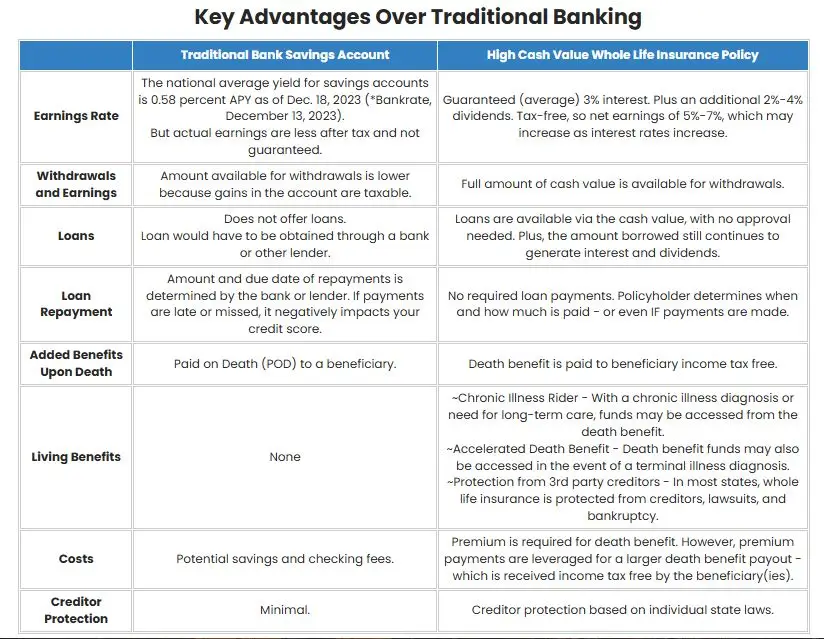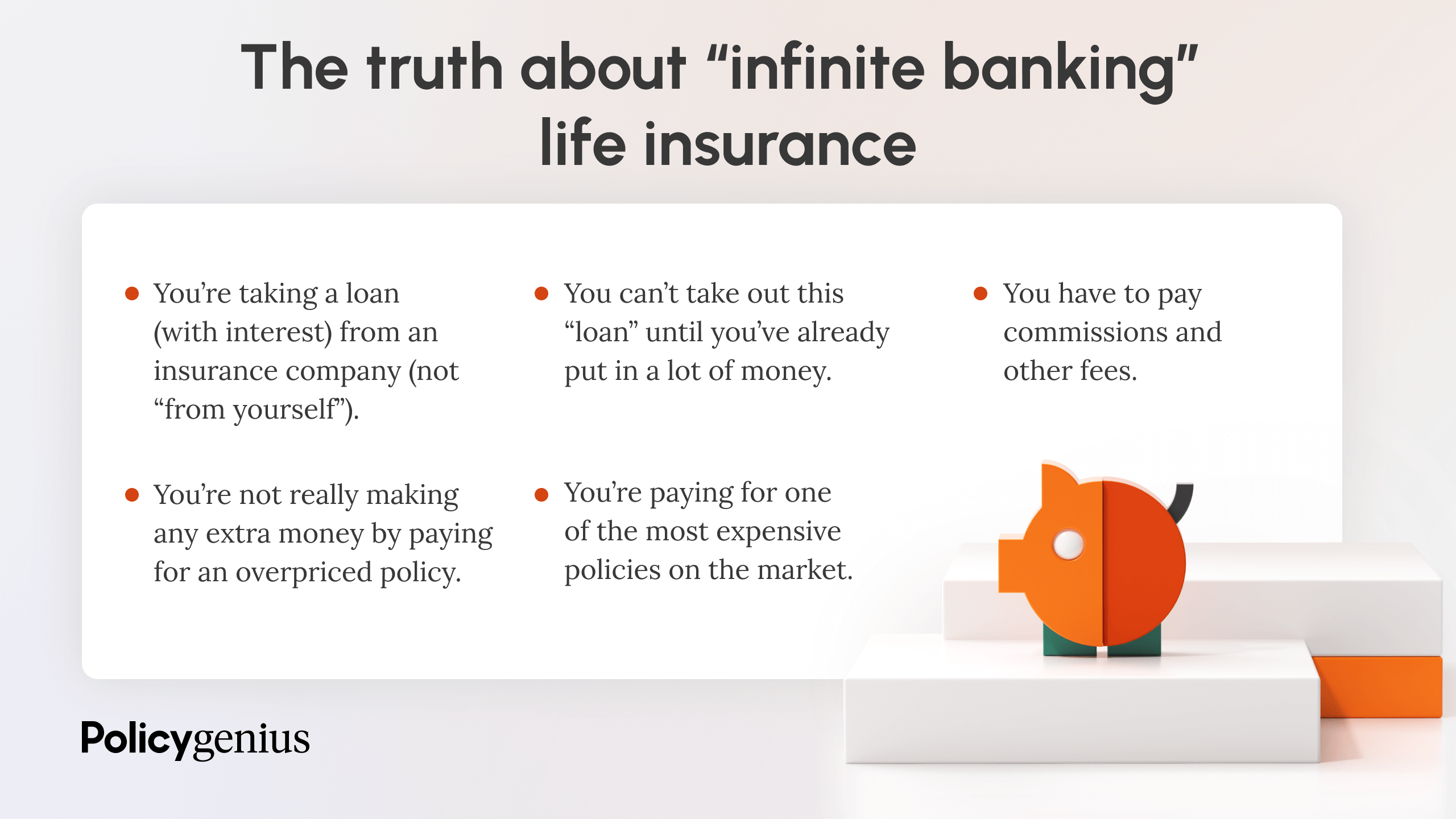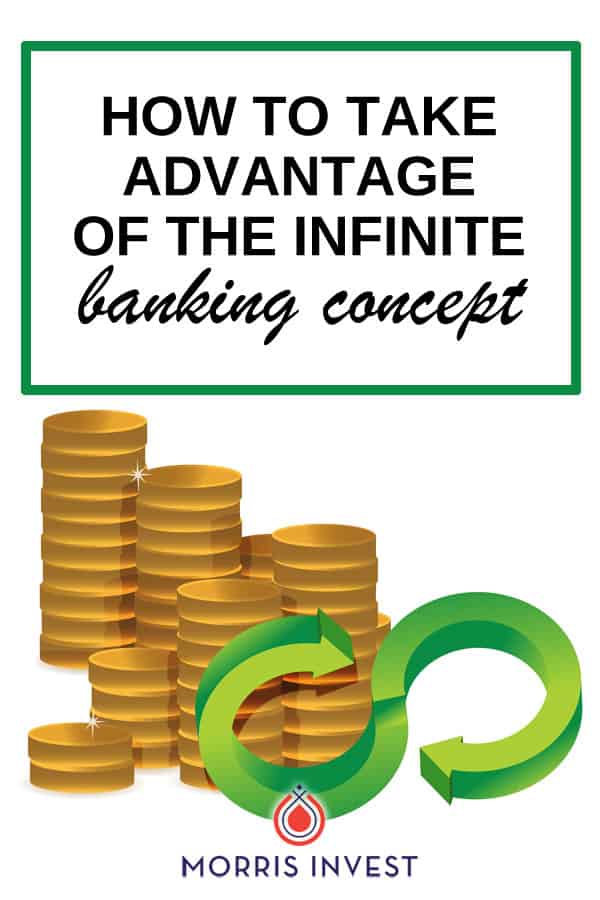All Categories
Featured
Table of Contents
The disadvantages of infinite financial are usually overlooked or otherwise mentioned in any way (much of the information readily available about this principle is from insurance coverage agents, which might be a little prejudiced). Just the money value is expanding at the returns rate. You likewise need to spend for the expense of insurance, fees, and costs.

Every long-term life insurance coverage plan is different, but it's clear someone's general return on every dollar invested on an insurance product might not be anywhere close to the returns price for the policy.
Be Your Own Bank Whole Life Insurance
To offer an extremely standard and hypothetical instance, let's think a person has the ability to make 3%, on average, for each buck they invest in an "infinite financial" insurance coverage product (after all expenditures and fees). This is double the approximated return of entire life insurance policy from Consumer Reports of 1.5%. If we think those dollars would certainly go through 50% in tax obligations amount to otherwise in the insurance policy item, the tax-adjusted rate of return might be 4.5%.

We assume higher than average returns on the entire life item and a really high tax price on dollars not take into the plan (that makes the insurance coverage item look much better). The fact for lots of people may be worse. This pales in comparison to the long-lasting return of the S&P 500 of over 10%.
Limitless banking is a fantastic product for representatives that sell insurance, however may not be optimum when contrasted to the less expensive choices (without any sales individuals earning fat commissions). Below's a break down of some of the other purported advantages of infinite banking and why they may not be all they're split up to be.
Infinite Banking Link
At the end of the day you are getting an insurance item. We enjoy the defense that insurance uses, which can be gotten a lot less expensively from an inexpensive term life insurance policy plan. Unpaid loans from the plan may also lower your death advantage, lessening one more level of security in the plan.
The concept just works when you not only pay the significant costs, however utilize extra money to acquire paid-up additions. The chance price of all of those bucks is tremendous very so when you might instead be investing in a Roth Individual Retirement Account, HSA, or 401(k). Even when contrasted to a taxable financial investment account or also a cost savings account, unlimited banking may not supply similar returns (contrasted to investing) and comparable liquidity, gain access to, and low/no fee structure (compared to a high-yield interest-bearing accounts).
With the rise of TikTok as an information-sharing platform, economic recommendations and techniques have found an unique method of spreading. One such method that has been making the rounds is the infinite banking concept, or IBC for brief, amassing endorsements from stars like rapper Waka Flocka Flame. Nonetheless, while the approach is currently prominent, its roots trace back to the 1980s when financial expert Nelson Nash presented it to the world.

Within these policies, the cash worth grows based on a rate established by the insurance company. Once a considerable money worth collects, insurance policy holders can obtain a cash worth lending. These finances vary from conventional ones, with life insurance policy functioning as security, implying one could lose their protection if borrowing excessively without sufficient money value to sustain the insurance policy prices.
Whole Life Insurance Infinite Banking
And while the appeal of these policies appears, there are inherent constraints and threats, necessitating diligent money value surveillance. The technique's legitimacy isn't black and white. For high-net-worth people or entrepreneur, particularly those using strategies like company-owned life insurance coverage (COLI), the advantages of tax obligation breaks and substance growth might be appealing.
The appeal of limitless banking doesn't negate its challenges: Expense: The fundamental requirement, an irreversible life insurance policy, is more expensive than its term counterparts. Eligibility: Not every person gets entire life insurance as a result of rigorous underwriting processes that can exclude those with certain wellness or way of living problems. Intricacy and risk: The complex nature of IBC, combined with its dangers, may deter many, particularly when simpler and less risky alternatives are readily available.

Alloting around 10% of your monthly income to the policy is just not possible for the majority of individuals. Part of what you check out below is just a reiteration of what has actually currently been stated over.
Before you obtain on your own right into a scenario you're not prepared for, understand the following initially: Although the concept is typically offered as such, you're not really taking a finance from on your own. If that held true, you wouldn't have to repay it. Instead, you're obtaining from the insurer and need to settle it with rate of interest
How Can You Be Your Own Bank
Some social networks blog posts advise making use of cash money worth from whole life insurance policy to pay for bank card financial obligation. The idea is that when you repay the car loan with passion, the amount will be returned to your investments. That's not exactly how it works. When you pay back the financing, a portion of that passion goes to the insurer.
For the initial several years, you'll be repaying the compensation. This makes it very difficult for your plan to collect worth throughout this moment. Entire life insurance policy prices 5 to 15 times a lot more than term insurance coverage. Lots of people merely can't afford it. So, unless you can pay for to pay a couple of to several hundred dollars for the next years or more, IBC won't help you.
If you call for life insurance coverage, right here are some valuable suggestions to think about: Think about term life insurance. Make certain to go shopping around for the ideal rate.

Unlimited financial is not a product and services supplied by a certain organization. Infinite financial is a technique in which you purchase a life insurance policy plan that collects interest-earning cash money worth and take out fundings versus it, "borrowing from yourself" as a resource of capital. At some point pay back the financing and start the cycle all over once more.
Pay policy premiums, a portion of which develops cash value. Money worth gains intensifying passion. Take a car loan out versus the policy's money worth, tax-free. Pay off finances with rate of interest. Cash worth collects again, and the cycle repeats. If you utilize this idea as meant, you're taking cash out of your life insurance policy policy to buy whatever you 'd require for the rest of your life.
Latest Posts
Infinitebanking.org
Infinite Banking Examples
Bank On Yourself: How To Become Your Own Bank